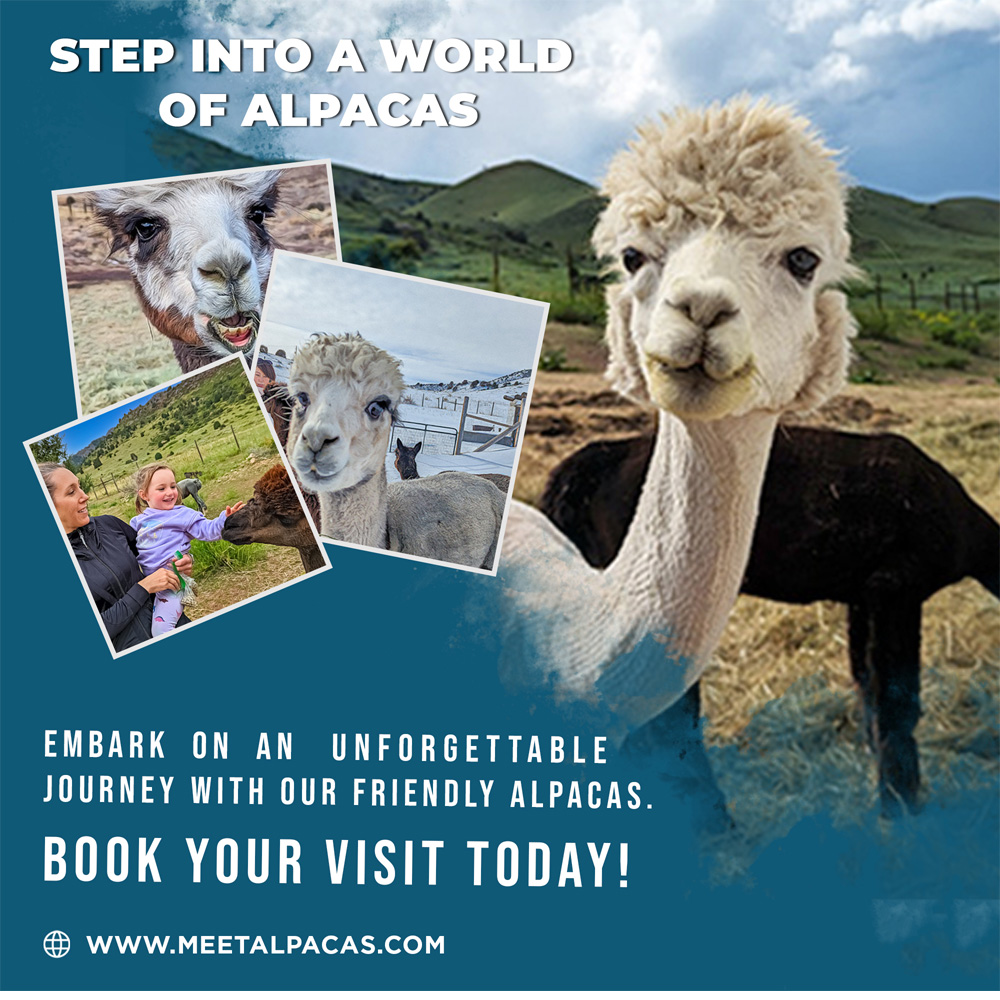Top alpaca adventures and vacation tricks and tips in Colorado
Hot alpaca adventure tours and vacation tricks and tips in Denver, Colorado: Alpaca farms are a unique way to connect with nature and learn about sustainable living. These farms also host community events like shearing days, fiber arts classes, and farm tours, fostering a sense of community spirit. When you visit an alpaca farm, you’ll likely be able to see and even touch the herd. You can also shop in the store for products like hats, socks, and scarves made from the herd’s soft fleece. The ranch hosts special events and open farms to let people meet the herd and learn more about these wonderful animals. They have a wide variety of fiber artists who conduct workshops on creating items from the animals’ wool, and there’s even an alpaca-inspired coffee bar! Read additional information at alpaca adventures in Colorado.

Alpacas have a lot to offer visitors. They are quiet, serene animals that graze peacefully in their pastures and often greet you with gentle nose kisses. They produce soft, silky fiber and are much warmer and stronger than sheep’s wool. They are easy to raise and get along well with other farm animals, making them ideal for hobby farms. They also qualify as livestock, which may allow you to take advantage of tax advantages and incentives.
Here’s why an alpaca experience is perfect for your upcoming trip to Denver. Alpacas are adorable, fluffy, and friendly animals. People are often surprised by just how sociable they are and how much they enjoy human affection. They are also incredibly calm creatures with steady temperaments. This makes them perfect for the whole family. They don’t display erratic behavior, making them more predictable around children.
Alpaca fur is a very prized fiber for artisans and crafters. Alpaca fur is very soft and does not retain water. It is also very durable. According to National Geographic, alpaca fur is the second strongest animal fiber, after mohair. Alpacas come in 22 colors, from a true, blue-black through browns and tans to white, according to Alpaca Ventures. Some Andean people eat alpaca meat. In Peru, it is often served in upscale restaurants. Alpacas don't have teeth in the top-front of their mouths. This gives them the appearance of having an underbite.
Additionally, if you love seeing and interacting with animals, an alpaca farm provides a hands-on experience. You can hand-feed your new friends a healthy snack and hang out with them while they provide amusing entertainment. It provides you with the chance to interact with the ranch: Most people don’t know a lot about alpacas before they visit the ranch. Alpacas originate from South America, and they’ve been brought to Colorado over the last several decades. The climate of Colorado is perfect for the alpaca, so they’re content living on ranches in Denver. Are you looking for an educational opportunity for your kids? Come enjoy an alpaca experience that’s not only fun but also informative. This alpaca experience takes place on a fiber farm. This type of farm raises animals like alpacas, sheep, goats, llamas, angora rabbits, and more for their fleece and wool.
Do alpacas make noise? Alpacas are very quiet, docile animals that make a minimal amount of sound. They do make a humming sound as a means of communication or to express concern or stress. Most communication between alpacas is nonverbal. Occasionally you will hear a shrill "alarm call," which usually means they have spotted something of concern nearby, and they are warning others in the herd. The concern may be a predator, or may be something they are not familiar with, like a cow or horse in a neighboring field. Male alpacas also "serenade" females during breeding with a guttural, throaty sound called "orgling." Find even more information on meetalpacas.com.
As with all livestock, owners and visitors should use common sense and a degree of caution when working around alpacas. People working with alpacas should wear long pants and shoes or boots that have traction and cover the whole foot. Proper handling of alpacas, as well as all camelids, requires humans gaining their trust by using a calm voice and light restraint. Handling alpacas for herd husbandry is best taught to novice alpaca owners by experienced owners or experts.
Are alpacas easy to train? Alpacas are very smart animals and are fairly easy to train. It is best to start training them when they are young so that they will accept a halter and learn to follow on a lead. Many owners also enjoy training them to walk through obstacles. Some even compete with their alpacas at shows where they walk over, through, and around objects and also jump over small hurdles. Also, it is helpful to train alpacas to ride in a trailer or van if they ever need to be transported to a show or another farm. Alpacas are easy to transport, as they normally cush (lay down with their legs folded under them) when traveling. Be aware that alpacas should not be tied up when traveling.
Adorable, docile and soft, alpacas are prized as pets and cattle around the world. There are no wild alpacas. Alpacas are domesticated versions of vicuñas, South American ruminants that live high in the Andes. Alpacas are related to llamas, which are domesticated versions of another wild Andean ruminant, the guanaco. While llamas are used as pack animals, alpacas are raised mainly for their soft wool. Guanacos and vicuñas are found throughout the Andes Mountains. They are descended from camelids that developed in North America and migrated to South America 3 million years ago, according to Phil Switzer, an alpaca breeder based in Colorado. These animals evolved into guanacos and vicuñas, and about 6,000 years ago, people in the Andes began to domesticate them. There are two breeds of alpaca, the Huacaya and the Suri. Huacaya alpacas are more common, according to Switzer.
